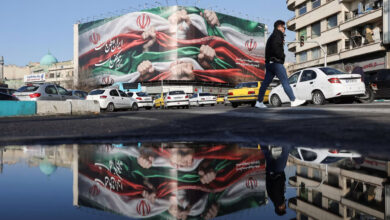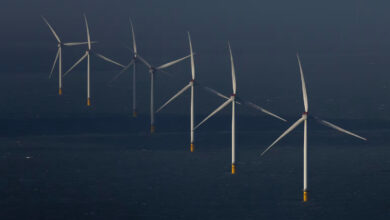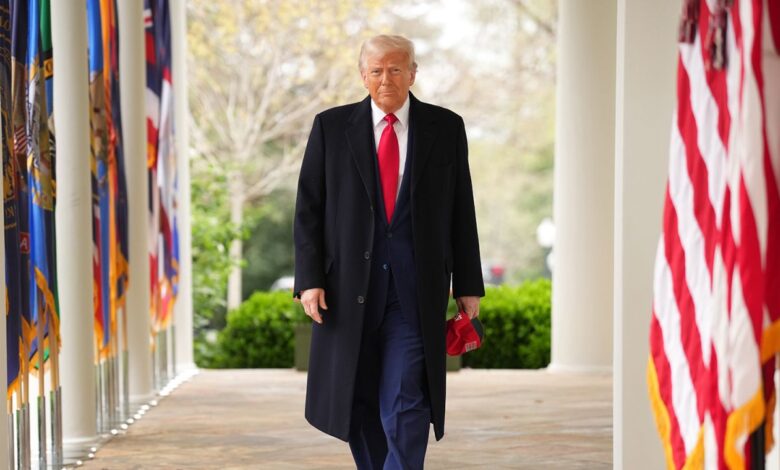
A crush of domestic and global confrontations initiated by Donald Trump could be decided by this question: How much power does the president really have?
Imagery from Trump’s trip to the Persian Gulf this week built on three months of the White House’s aggressive flexing of often-questionable authority at home.
Purple carpets, fighter jet escorts and opulent state banquets laid on by monarchs and princes all fueled the chosen rationale of Trump’s second term — that he’s a president of exceptional, even unique power.
But if his presidency is to move beyond personality-cult stunts into genuine legislative achievements at home and fulfill his “peacemaker” promises abroad, Trump must show he can deploy power and political capital — not just pose as an omnipotent figure.
Recent days suggest that while Trump can claim vast executive authority and take advantage of the wide latitude granted by the Constitution to dictate foreign policy, he cannot control every event
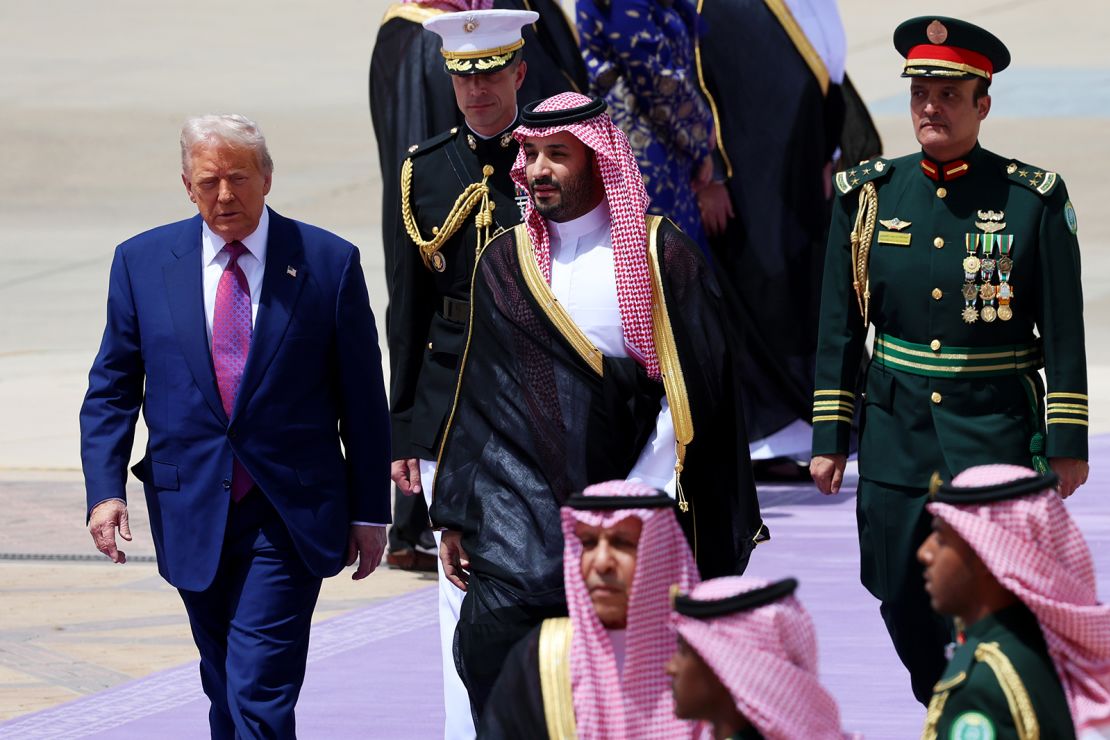
Foreign leaders who fail to recognize Trump’s power
While Trump intimidates many of his domestic opponents, there’s no shortage of hostile foreign leaders willing to deploy their own great power to test him.
His most serious rival for the title of the most powerful man in the world, China’s President Xi Jinping, forced the president to rein in his trade war after refusing to bend to Trump’s 145% tariff. The US leader cut the tariff to 30% pending talks with Beijing as severe economic pain beckoned.
The lesson many leaders will take is that when the United States begins to feel the pain of Trump’s actions, the president will back down. Such perceptions will drain his capacity to score the big wins on trade he believes are in reach.
Trump’s unpopularity in many Western democracies may also mean leaders will acquire their own political power to stand up to him. New Canadian Prime Minister Mark Carney, for instance, won the recent general election specifically by running against the US president.
Another US adversary, Russian President Vladimir Putin, is undermining the idea that Trump can simply dictate outcomes across the planet. He failed to show up for peace talks in Turkey that Trump all but ordered Ukrainian President Volodymyr Zelensky to attend in a snub to Washington’s peace effort.
But even after this humiliation, Trump dug deeper into his delusion that the force of his personality alone will create breakthroughs.
“Nothing’s going to happen until Putin and I get together,” Trump told reporters aboard Air Force One on Thursday. One curious aspect of the president’s bid to end the war is that while imposing public pressure on Zelensky, he’s been unwilling to use the substantial power he has — in the form of new sanctions against Russia or arms shipments to Ukraine — that might force Putin to the table.
Still, Trump would be far from the first US president to find out that the power of the presidency, the world’s most powerful military and the force of their own personalities cannot simply change calculations of US foes. Foreign nations and non-state actors such as terror groups act according to their perceptions of their self-interests. They don’t just bow to a president’s power.
Trump has more luck imposing strongman rule at home
At home, the president is effectively using his power to intimidate.
He’s taken executive action against top law firms involved in prosecutions against him; he’s neutered the White House press pool. And Trump has used presidential authority to attack institutions that have challenged his own reality — like Harvard University. This has led to yet more court fights.
And other powerful figures have been intimidated by the perception of a strongman president. The homage paid to Trump at his inauguration by tech CEOs whose firms dominate modern American society remains one of the signature images of his presidency.
But in other areas, reality is forcing Trump to step back.
He wielded unchecked power in imposing tariffs. But he can’t control their impact. On Thursday, the source of another kind of American power — the mighty Walmart chain — warned that “higher tariffs will result in higher prices.”
This is a dangerous truth for the White House.
Officials lashed out at other firms who’ve warned about the direct cost to shoppers of tariff policies. White House press secretary Karoline Leavitt accused Amazon of a “hostile and political act” when one of its websites was reportedly considering itemizing the costs of new import duties — a scheme that never came into force. But her rebuke showed the White House understands how a public backlash could gut Trump’s controversial use of presidential authority to reshape the economy.
Challenging the power of the courts
The president’s attempts to act without restraint are a constant motif of this fateful moment in American politics.
Trump’s new term is underscoring that while courts have considerable heft in reining in a president’s authority, their capacity to act as constraints on an unrestrained executive is retrospective.
For instance, many of the scything cuts made to the federal government and the bureaucracy by Department of Government Efficiency chief Elon Musk have been suspended or even reversed. But government agencies have already been decimated by the time courts act. Trump may end up losing the legal battle over the dismantling of the US Agency for International Development. But the loss of programs is already having a humanitarian toll. A future president will find it hard to repair the damage.
Trump frequently showed in his first term that he believed he had almost absolute authority. The misconception was reinforced when the Supreme Court found that a president has substantial immunity for official acts just before he won the 2024 election.
The second Trump White House, purged of any officials who might push back against his power grabs, has implemented the most sweeping interpretation of presidential sway of the modern era. One strategy has been to implement national emergencies on trade and immigration to unlock rarely used presidential authorities. Pliant GOP majorities have done nothing to wield Congress’s own constitutional power to block him — partly because of Trump’s remarkable hold on grassroots voters.
In some ways, Trump is building on a trend of recent decades. Congress’s failure to overcome polarization and do its job — in passing budgets and fixing crises like the one at the southern border — has given presidents more leeway to use executive power. Several, including Democrats Joe Biden and Barack Obama, wielded their presidential pen in frustration at lawmakers’ impotence.
But Trump, characteristically, pushed that method to extremes.
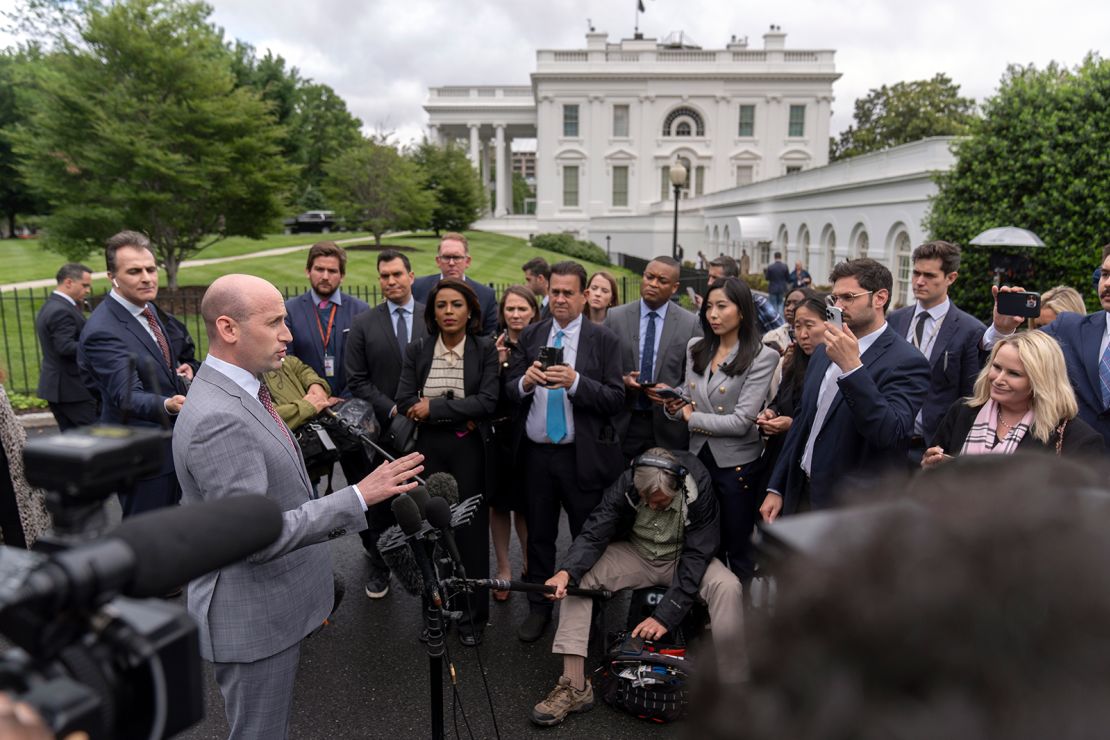
The Supreme Court is yet again asked to adjudicate presidential authority
As Trump spent the last day of his tour of the Gulf in the United Arab Emirates on Thursday, the question of presidential power was consuming Washington. The Supreme Court held a critical hearing that could define Trump’s capacity to act.
The case arises from Trump’s attempt to reject the constitutional right to birthright citizenship. Justices must decide whether to lift a series of nationwide court orders blocking him from enforcing the policy. If the administration prevails, it could subvert the capacity of a single court to impose stays on key policies. This would potentially dismantle one of the few constraints on Trump’s strongman rule and might apply across a range of issues that go beyond immigration.
On another legal front, the administration is examining what would be another enormous power play, that has critics warning of encroaching authoritarianism. White House deputy chief of staff Stephen Miller said last week officials were “actively looking” at suspending habeas corpus — the legal procedure that permits detained people to petition for their release in court. Miller threatened the move in an apparent attempt to pressure judges who use their own constitutional authority to check the executive branch. “A lot of it depends on whether the courts do the right thing or not,” Miller said.
Trump’s political capital will also be critical
When Trump arrives home Friday night, another aspect of his power will be tested — his capacity to force Republican lawmakers to enact his agenda. GOP negotiators are expected to work through the weekend on his “big, beautiful bill.”
The measure contains many of Trump’s top legislative priorities, including huge tax cuts, plans to expand energy production and hiking defense spending. Trump is also seeking steep reductions in public spending, but to make the numbers add up, Republicans are seeking to curb Medicaid and food stamp programs — a strategy that could end up hurting many Trump voters.
The expectation is that House Speaker Mike Johnson will eventually squeeze the measure through with his tiny House majority because Trump wants it so badly and because the president maintains a dominant hold over GOP voters who pressure lawmakers in their districts. And no president’s power is ever as potent as in the early months of his term.
But a tough path awaits the bill in the Senate.
Trump’s best, and perhaps only, chance for a substantial second-term legislative legacy depends on his power to make GOP lawmakers do what he wants. His ambitious bid to remake global political and trading systems in his own image will depend on similar attempts to coerce other world leaders.



